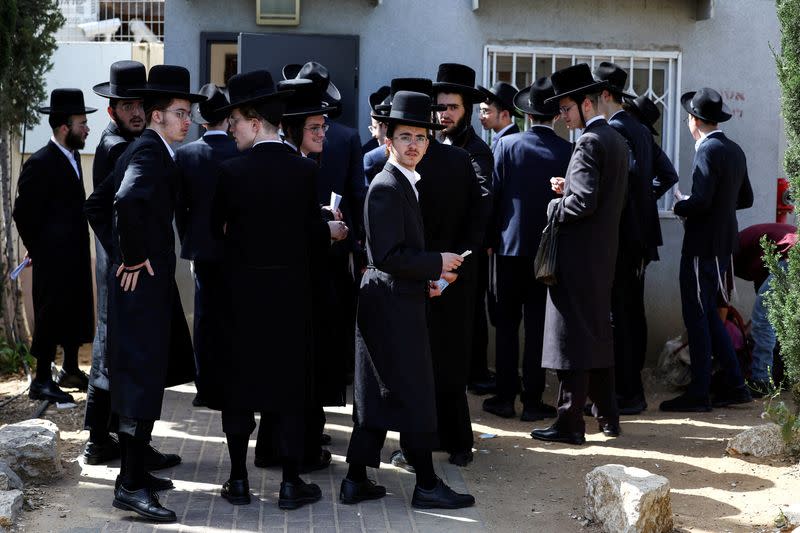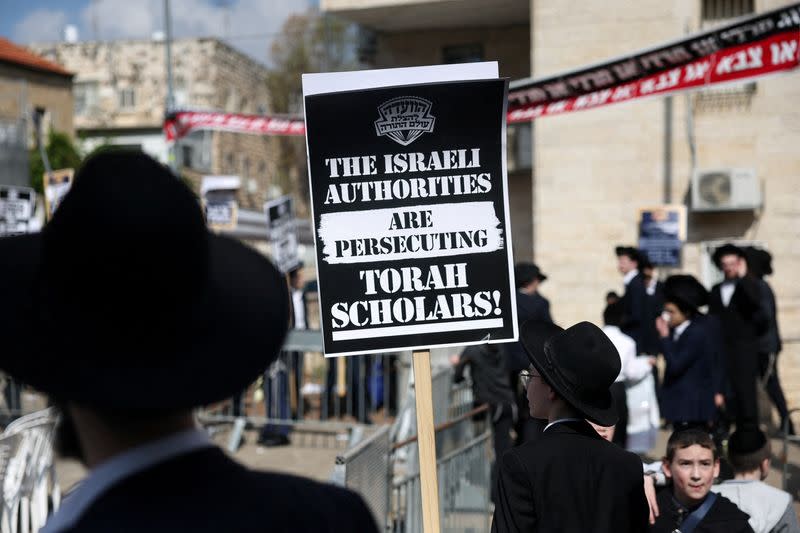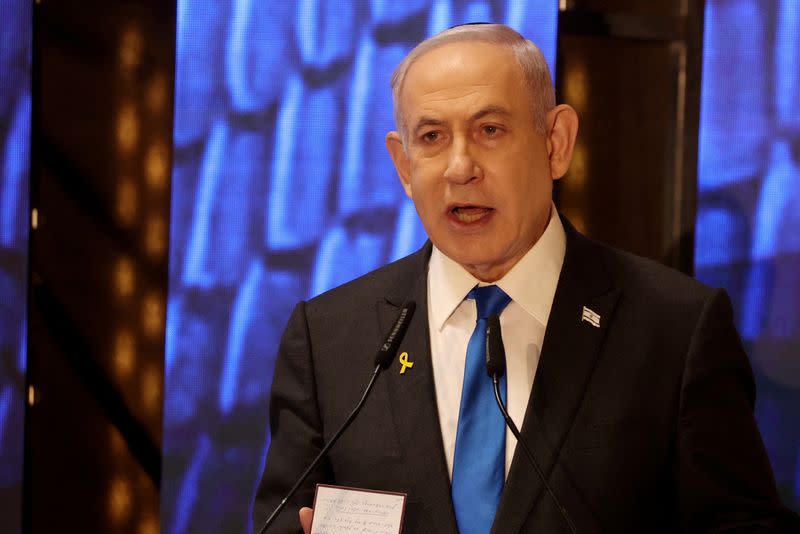Israeli PM presses bill on drafting ultra-Orthodox Jews into military
By Maytaal Angel
JERUSALEM (Reuters) - Prime Minister Benjamin Netanyahu put forward a new conscription law proposal on Wednesday, one day before a deadline from Israel's top court, which has been pressing for resolution of a stalemate over the exemption from military service of ultra-Orthodox Jews.
Earlier this month, the Supreme Court gave Netanyahu's ruling coalition until May 16, to come up with a new conscription plan to address festering anger among a majority of citizens at the exemptions granted to ultra-Orthodox Jews.
The conscription issue is especially fraught for Netanyahu this year, with the country embroiled in an open-ended war in Gaza that has exacted the worst Israeli casualties - mostly among teenaged draftees and reservists - in decades.
Moreover, his coalition includes two ultra-Orthodox parties for whom military exemptions are paramount, and who have in the past threatened to quit the government if the conscription law goes ahead.
Ultra-Orthodox Jews, who make up around 13% of Israel's 10 million population, see conscription waivers as key to keeping members of their community away from a melting-pot military that might test their conservative values and their faith.
The proposed bill put forward on Wednesday would gradually increase national service recruitment among the ultra-Orthodox. It is based on a bill put forward under the previous government by Benny Gantz, a centrist former army chief, who joined Netanyahu's government early in the war as a gesture of national unity.
However Gantz, seen as a likely candidate to replace Netanyahu as prime minister, dismissed the bill, passed in preliminary reading by a previous parliament, which he said was insufficient to meet Israel's current wartime needs.
"Israel needs soldiers, not political manoeuvres. The law agreed upon in the previous government is not relevant in the post October 7 reality," he said in a tweet on social media platform X.
The stand-off underlines the deep divisions between former army commanders like Gantz and his ally Gadi Eisenkot, who want to ease the personnel problems of Israel's military, and the Orthodox and national religious parties in the coalition that want to maintain the prized exemptions.
Netanyahu's office said the prime minister is seeking to bridge societal and political divides and is calling on all parties that had supported the proposed conscription law in the previous parliament to back it once more.
Defence Minister Yoav Gallant said he would support any conscription law that was supported by all the other parties in the coalition but would not support any unilateral moves to impose a law by any of the parties.
Economists argue that the conscription waiver keeps some of the ultra-Orthodox community unnecessarily out of the workforce, spelling a growing welfare burden for largely secular, middle-class taxpayers.
Israel's 21% Arab minority is also largely exempted from the draft, under which men and women are generally called up at the age of 18, with men serving 32 months and women 24 months.
(Reporting by Maytaal Angel; Editing by Gareth Jones and Jonathan Oatis)




